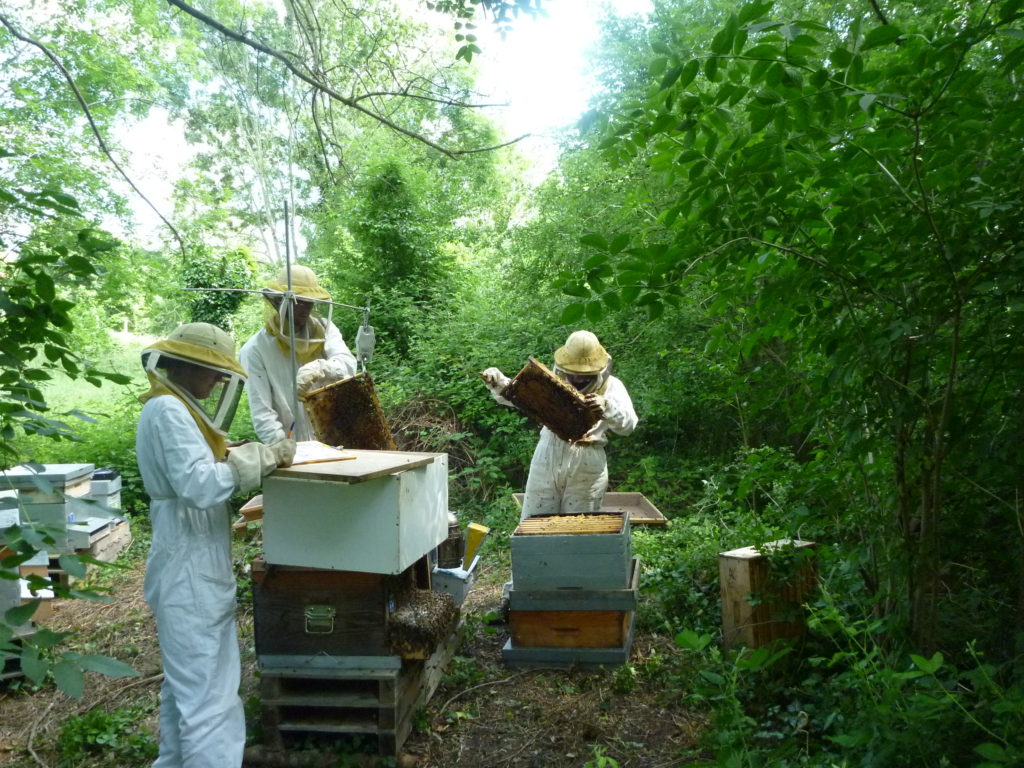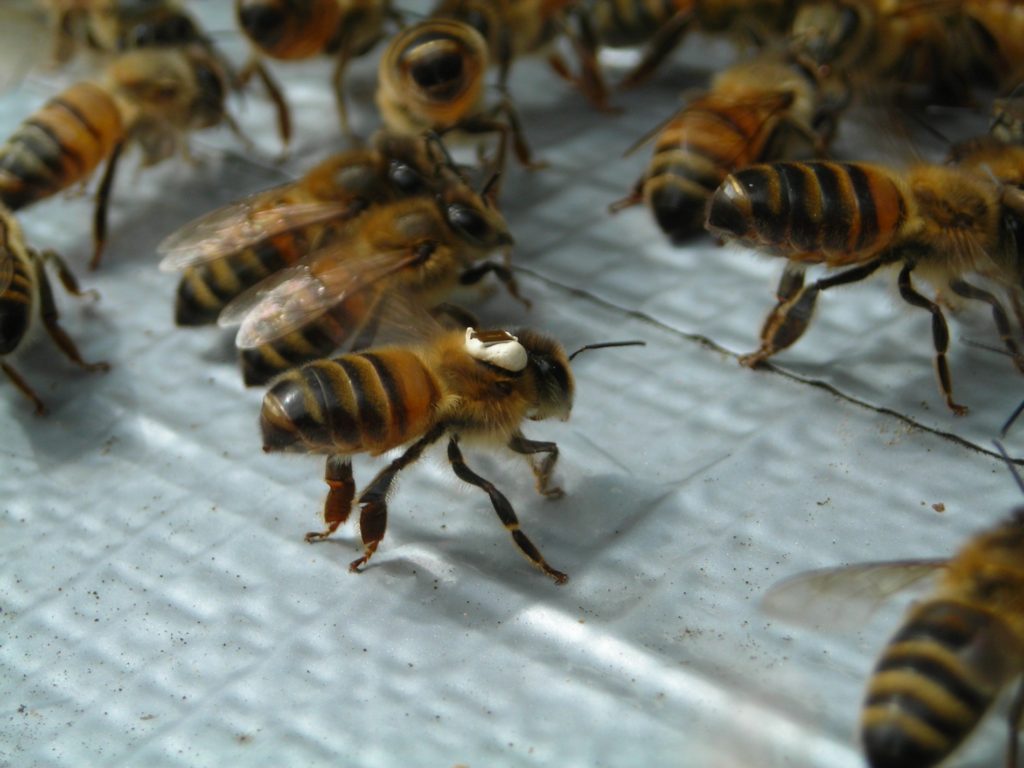Fabrice studies the many stressors that bees face in human-dominated landscapes. These include pesticide exposures, lack of flower resources, parasites, pathogens and climate changes. He is particularly interested in the adaptive responses of bees to those stressors. Currently focusing on honeybees, he uses BEEHAVE to predict colony traits such as colony survival rate and honey harvests in a variety of environmental conditions. Through this work his aim is to understand how different stressors act in combination and together to lead to colony failure.
Fabrice is involved in many projects that cover the practical applications of BEEHAVE to the technical calibration of BEEHAVE, right through from hive management to landscape management;
Calibrate BEEHAVE with empirical data.
What: Fabrice worked for two-years as Postdoctoral researcher in France. Here he developed a method to calibrate the BEEHAVE model. He compared model predictions and empirical observations (the ECOBEE monitoring in central-western France) and utilised these data on landscape, weather and beekeeping practices to apply the predictions of BEEHAVE.
Where: Pollination and Bee Ecology lab (INRA, of Avignon, France) in collaboration with the Environment and Sustainability Institute (ESI) at University of Exeter.
Simulate multiple stressors in BEEHAVE.
What: He also simulated multiple stresses with BEEHAVE in order to identify the combination “at risk” that lead to colony failure. In BEEHAVE, he implement, all the stresses that occur in the bee colony environment (using the example of the ECOBEE monitoring in France), and assessed which combination of stressors threaten the colonies and at which thresholds. A particular application was intended for the risk assessment of a new predator of bees in France, the yellow-legged hornet Vespa velutina.
Where: Pollination and Bee Ecology lab (INRA of Avignon, France) in collaboration with the ESI at the University of Exeter.
Conduct landscape-scale simulations of BEEHAVE.
What: Currently in his new Postdoctoral position in he is managing a volunteer-based survey of honeybee colonies, to enable large-scale recording of bee colony traits, environmental conditions and the occurrence of parasites and pathogens to provide large-scale predictions. Starting this approach in Argentina, he is particularly interested in the national climate gradient to assess the climate dependency of combined stresses effects on bee colony failure.
Where: Argentina at IRNAD-UNRN (2016-2018), the “Instituto de Investigación en Recursos Naturales, Agroecología y Desarrollo Rural” and the “Universidad Nacional de Río Negro” (UNRN)
Use BEEHAVE to predict crop pollination service.
What: Fabrice is also developing a new BEEHAVE application assessing the number of bee colonies to place in crop to insure pollination service.
Where: Argentina at IRNAD-UNRN, in collaboration with INRA (France).
Running BEEHAVE with R.
What: To facilitate the used of BEEHAVE, he is working on a R-package “Beehave” to run BEEHAVE (created with NetLogo) with R, i.e. the more common statistical free open-source software. This R-package “Beehave” will aim to simulate a large number of BEEHAVE simulations, with different functions enable to calibrate the model (input of virtual or real landscape maps, weathers, and beekeeping practices) and to simulate multiple stresses.
Dr. Fabrice Requier is an ecologist and works currently in a postdoctoral position in Argentina at IRNAD and UNRN. Using both experimental data and BEEHAVE, his research focuses on the effects of global environmental change on bees. Fabrice has a PhD in Ecology from the Centre d’Etudes Biologiques de Chizé – and INRA Le Magneraud (France) and an MSc in Biodiversity, Ecotoxicology and Ecosystems and a BSc in Biology from the University of Metz (France).



